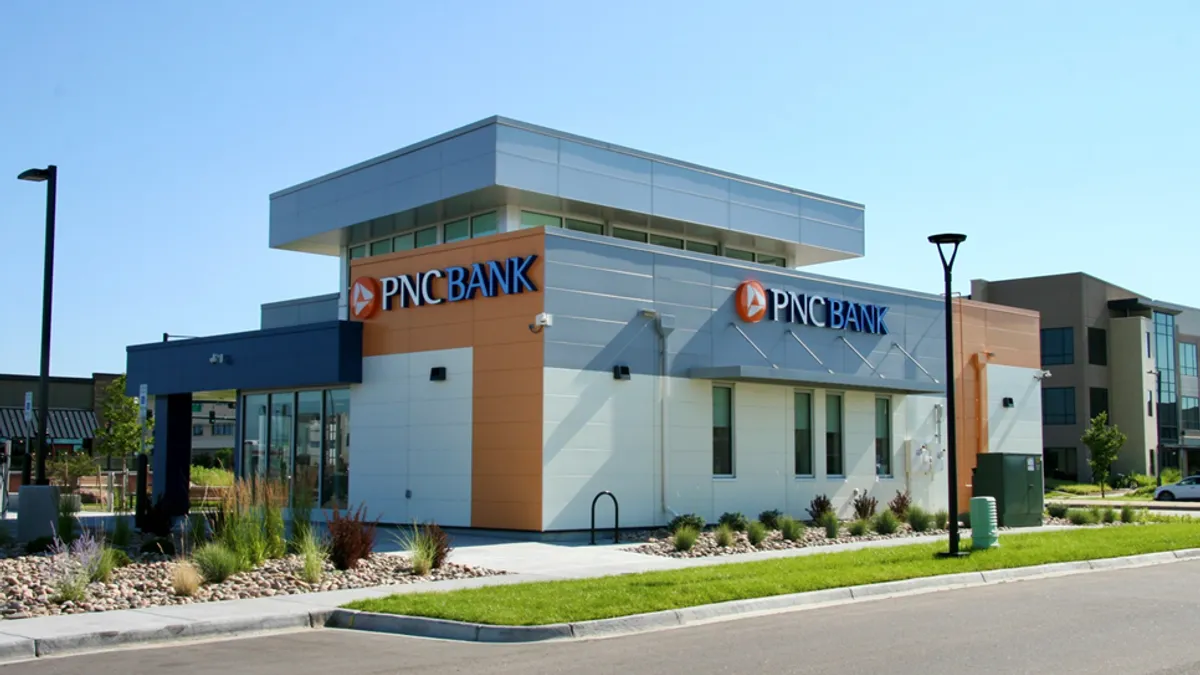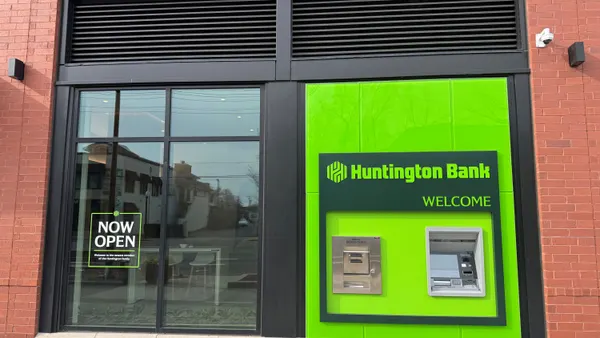PNC CEO Bill Demchak on Tuesday indicated the super-regional lender is open to doing more bank deals, but there are more buyers than sellers in the market lately.
Pittsburgh-based PNC said Monday it’s buying Lakewood, Colorado-based FirstBank for $4.1 billion; the deal would give PNC an additional $26.8 billion in assets and 95 branches across Colorado and Arizona. The transaction, expected to close in early 2026, is set to triple PNC’s presence in Colorado.
“Hopefully, the strategic rationale is pretty obvious,” Demchak said Tuesday at a Barclays investor conference. “We just effectively bought Colorado.”
Privately held FirstBank’s owners saw “the need to bring better products to their clients and for their employees to sell,” which “kind of put it in our lap,” Demchak said.
PNC’s acquisition of FirstBank is the second-largest U.S. bank deal proposed this year, after the $8.6 billion merger of equals between Nashville, Tennessee-based Pinnacle and Columbus, Georgia-based Synovus, announced in July.
Asked whether $559 billion-asset PNC sees a larger bank acquisition on the horizon, or whether the FirstBank deal precludes the Pittsburgh lender from doing more M&A, Demchak replied, “the path to growth is long and curious, and unpredictable.”
“If you asked me a year ago if a small bank existed that looked like this one … I probably would have said, no, they're all kind of broken and put together from old [Federal Deposit Insurance Corp.] deals,” he said. “Yet, here this is.”
“So if we saw something else like that, we'd likely do it,” he continued.
Currently, though, it’s more of a seller’s market, from the big-bank perspective, Demchak said.
“People you think might be sellers are actually buyers,” he said, adding he’d be “somewhat shocked” if a bigger bank opted to sell itself any time soon.
That’s no issue for PNC, he said, since the bank is also chasing organic growth through expansion into new markets, to pursue greater scale. PNC is seeing outsized growth in new markets relative to old markets, which Demchak expects will continue.
“The dynamics in Florida and Texas and in Colorado [and] Arizona are just wildly different than the dynamics in the Northeast, in terms of population growth and corporate growth,” Demchak said.
In the Southeast and Southwest markets, “share is shuffling aggressively,” he said, adding that PNC competes “locally with a hundred different banks and nationally with three.”
The regulatory environment for deal approvals may have gotten a bit easier, but the lack of appealing sellers may have PNC focused more on organic growth than another acquisition, Demchak suggested.
“Banks need to be up for sale,” he said. “We don't have a lot of interest in a typical smaller bank, in terms of where they're valued today. So you see a lot of little banks getting together with what I would suggest is maybe inflated currency.”
Some reaction to the PNC-FirstBank deal has centered on its 3.8% tangible book value dilution for PNC, which is high relative to the size of the purchase.
Demchak noted he would have preferred PNC do more of the deal in cash, but FirstBank wanted PNC stock; the deal consideration was 70% stock and 30% cash.
If a larger deal “made sense for our franchise and it made sense for our shareholders and you actually had somebody that had any interest whatsoever in pursuing it with us, we’d look at it,” he said. “None of that’s true right now.”













